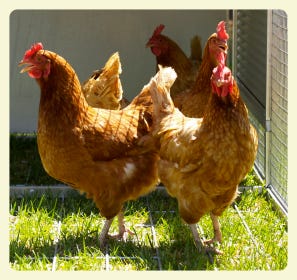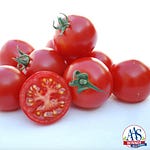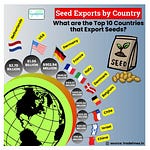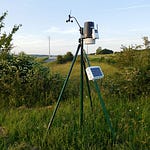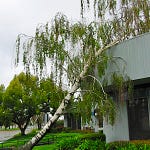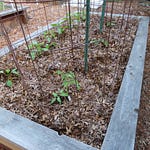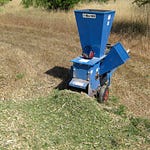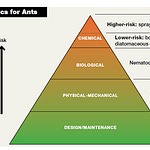Today’s “Beyond the Garden Basics” podcast takes a closer look at a very popular organic fertilizer: chicken manure. As retired organic landscape consultant Steve Zien of Living Resources Company points out, manures are an excellent soil amendment, especially their contribution to the soil biology. In this day and age, however, should chicken manure still be considered organic? Up to 90% of the corn produced in America is from Genetically Engineered seed. A major part of a chicken’s diet is corn, along with soybeans, of which a substantial portion is also grown with GE seed. Can we trust that what comes out of the other end of those chickens is organic? It depends who you ask.
One chicken manure fertilizer supplier, who specializes in organic fertilizers, danced around that topic…anonymously.
“I occasionally get this same question from home gardeners. Usually the person asking prefers a more “purist” definition of organic so it’s unlikely that I am going to change their opinion.
Dictionary.com: https://www.dictionary.com/browse/organic
Organic is:
* derived from a living organism
* a substance, as a fertilizer or pesticide, of animal or vegetable origin.
Chicken manure meets both of these definitions.
In addition, the National Organic Program (NOP) is responsible for the regulatory program that is part of the USDA agricultural marketing services that determine crops that can receive the USDA Organic Seal. The NOP clearly indicates that animal manure is an approved input for organic crop production: https://www.ecfr.gov/current/title-7/subtitle-B/chapter-I/subchapter-M/part-205/subpart-C/section-205.203
Most likely the “purist” will not accept that the kale they purchased with the USDA Organic Seal grown with poultry manure is truly organic but that is what the USDA has decided. I usually like to ask; what then is your definition of an organic input? Feather meal, blood meal, meat & bone meal are common organic fertilizer products and are all produced and processed from conventionally raised poultry, swine, or bovine. If the position is that only an organically raised livestock manure can be considered “organic” then the consumer needs to recognize that the organic feed that those organically raised chickens are eating is likely grown with conventionally raised chicken manure or conventionally raised feather meal, etc…
Often what I’ve found is the person questioning “is your chicken manure really organic” is more concerned about the about the use of steroids, hormones, and/or antibiotics fed to the conventionally raised livestock. Steroids & hormones are a complete myth with modern farming practices – they are banned by the USDA and not used:
Antibiotics are occasionally used in broiler operations and rarely used in layer operations. Still, I would argue that even if antibiotics have been used, residual levels do not exist in the manure. The composting process exponentially grows beneficial bacteria and fungus to break down the organic matter in the manure. If antibiotics were present, how would the beneficial bacteria grow?
I guess this doesn’t necessarily directly answer the corn GMO question but it’s in the same ballpark.”
GMO vs GE
If you listened to the podcast, you know we delved into the difference between GMO (Genetically Modified Organism) and GE (Genetically Engineered). University of Vermont Public Radio has an easy-to-understand, mud-filled primer on this topic.
Basically, “GMO” has a very broad definition. It’s a plant breeding process that has been around since the dawn of agriculture: plant pollen, being transferred from one plant variety to another plant variety, usually creating a slightly different plant within the same species. Think about the pollen of sweet corn being wind blown (or insect carried) to an adjoining field where popcorn is planted. The result: kernels that won’t pop, they’ll just burn when heated. Every tomato or pepper variety in your garden may be an heirloom variety, but it, too, had a beginning, 50, 100, or hundreds of years ago, when the wind or a bee moved pollen between two different tomato varieties, creating a new variety: a Genetically Modified Organism. Genetic Engineered food, on the other hand, is considered by the FDA as introduced in the 1990’s. One of the first GE foods available to the public? The Flavr-Savr tomato, developed by several UC Davis professors at Calgene in 1994. The tomato was taken off the market in 1998 for a variety of reasons.
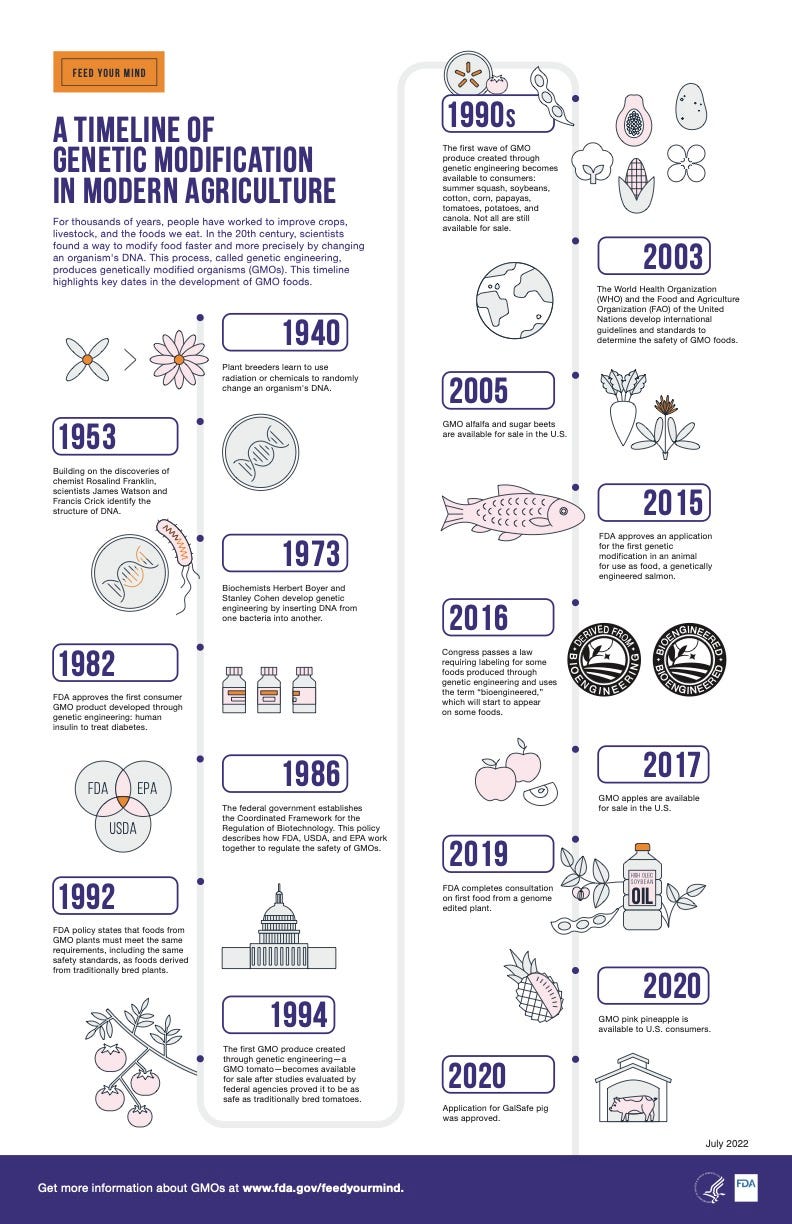
Unfortunately, language is a virus. And the term, “GMO” is still used in some circles when “GE” is what they are really upset about. Will the “non-GMO” label you read on many food products ever be changed to the more accurate, “non-GE” label?
There are no easy answers to the questions raised in this podcast. More research is necessary. And, more gardeners need to be asking the question: what’s really in this bag of fertilizer or soil amendments?
Thank you for listening to the Garden Basics with Farmer Fred podcast! It’s available wherever you get your podcasts. Please share it with your garden friends.
As an Amazon Associate, I earn from qualifying purchases from some of the underlined links in the newsletter. This is how I am trying to keep this a free newsletter. And as long as you buy whatever you want from Amazon using any of those links to get into the Amazon site, I get a few pennies. Thank you.
Thanks for Subscribing and Spreading the Word About the Beyond the Basics: The Garden Basics with Farmer Fred newsletter, I appreciate your support.
Fred Hoffman is also a University of California Cooperative Extension Master Gardener in Sacramento County.



